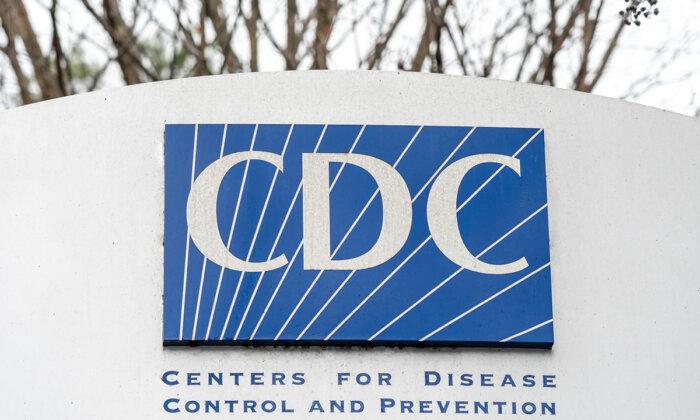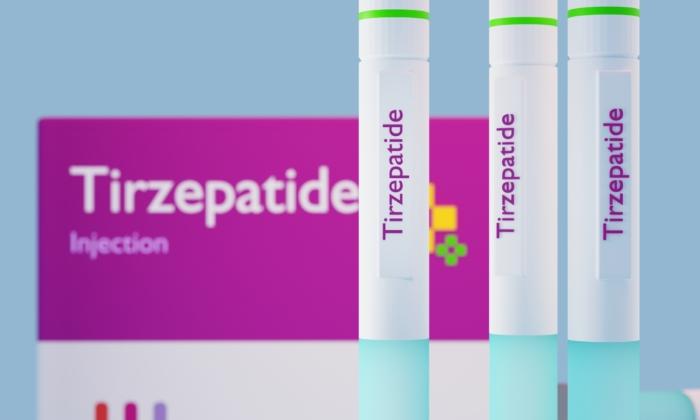Scientists have yet to uncover the mechanism that causes brain fog in long-COVID patients, but a new study may lead researchers one step closer to the answer.
An essential brain chemical responsible for carrying messages between nerve cells in the brain and throughout the body all but disappears in people with long COVID. The discovery may provide critical clues as to what causes one of the common neurological side effects of the post-COVID condition.
According to a
new study published in the journal Cell, University of Pennsylvania researchers found the neurotransmitter serotonin is significantly reduced in patients with long COVID. Serotonin loss results in a slow erosion of memory, the hindered ability to concentrate, and mood changes like depression and anxiety—otherwise known as “brain fog.”
Pathophysiology of Brain Fog
By sampling blood and stool samples of people infected with COVID-19, researchers found that the virus lingers in the gastrointestinal tract for months after the acute infection clears. Testing blood and stool samples of these patients allowed the researchers to trace a possible mechanism for why brain fog persists. The results, they said, yielded a complex pathophysiological explanation.
For the experiment, researchers followed 1,540 people with long COVID at Penn Medicine in Philadelphia, Pennsylvania, and categorized them into eight subgroups depending on the symptoms for which they were hospitalized—one of which was neurocognitive symptoms. Blood tests were then performed on 58 long-COVID patients who represented multiple groups and experienced persistent symptoms three to 22 months after their initial infection. Researchers then compared this group to 60 people infected with COVID-19 and 30 symptom-free recovered people, comparing differences in metabolites in their blood. They found serotonin was much lower in long-COVID patients, leading them to conclude the molecule is a predictor of long-COVID recovery.
According to the paper, a drop in serotonin levels is driven by remnants of the virus that won’t go away due to interferons. Interferons
communicate between cells against pathogens—in this case, COVID-19—and play an essential role in immunity by activating natural killer cells. Natural killer cells destroy viruses and disease cells, preventing them from spreading.
Interferons cause serotonin depletion by decreasing the uptake of tryptophan, serotonin’s precursor. Depleted serotonin can make people susceptible to
depression, panic attacks, and aggression. Without tryptophan—and thus, serotonin—cognition is impaired by a process called vagal signaling.
Vagal signaling circulates hormonal signals alongside brain signals from other brain regions. It also plays a key role in gastrointestinal movement and whole-body inflammation.
“Long COVID varies from patient to patient, and we don’t fully understand what causes the differences in symptoms,” co-senior author and assistant professor of microbiology Christoph Thaiss said in a news release. “Our study provides a unique opportunity for further research to determine how many individuals with long COVID are affected by the pathway linking viral persistence, serotonin deficiency, and dysfunction of the vagus nerve and to uncover additional targets for treatments across the different symptoms patients experience.”
Differing Explanations Behind Symptoms
Dozens of common physical symptoms range from mild to debilitating. According to the U.S. Centers for Disease Control and Prevention (CDC), the list includes:
- Difficulty breathing or shortness of breath.
- Tiredness or fatigue.
- Symptoms that worsen after physical or mental activities (post-exertional malaise).
- Cough.
- Chest or stomach pain.
- Headache.
- Fast-beating or pounding heart (heart palpitations).
- Joint or muscle pain.
- Pins-and-needles feeling.
- Diarrhea.
- Sleep problems.
- Fever.
- Dizziness on standing (lightheadedness).
- Rash.
- Change in smell or taste.
- Changes in menstrual period cycles in women.
Long COVID may also come with equally debilitating, persistent psychological problems like anxiety, depression, and other mood changes. While this study gives insight into what may cause brain fog, University of California–San Francisco (UCSF) experts in the Department of Psychiatry and Behavior say otherwise.
“We do not yet know what causes these distressing symptoms, but there are three possibilities for why they may occur,” authors wrote in an article published on UCSF’s
Weill Institute for Neurosciences website. “They could be the result of the specific effects of COVID-19 on the brain, the immune system, or other organ systems,” or the “result of traumatic aspects of the experience of having COVID-19.”
Even long-term hospitalization in the intensive care unit can profoundly affect cognitive problems like poor concentration and
post-traumatic stress disorder (PTSD)—symptoms all linked to brain fog. “Ongoing psychological symptoms could be the result of despair patients experience from long-term breathing problems or fatigue with no end in sight,” the UCSF experts wrote.
Untangling the Mysteries of Long COVID
Data from the CDC’s
National Health Interview Survey provide a snapshot of the current state of long COVID in the United States, presenting the following:
- As of 2022, nearly 7 percent of U.S. adults have had long COVID.
- Women were more likely to experience it than men.
- Adults ages 35 to 49 were more likely to develop long COVID than other age groups.
Scientists have yet to find a cure for long COVID. However, according to the University of Pennysylvania study authors, their study has brought the scientific community one step closer to an answer.
“Many aspects of the basic biology underlying long COVID have remained unclear. As a result, we are lacking effective tools for the diagnosis and treatment of the disease,” said senior author Maayan Levy, an assistant professor of microbiology at Penn Medicine, in the same news release. “Our findings may not only help to untangle some of the mechanisms that contribute to long COVID, but also provide us with biomarkers that can help clinicians diagnose patients and objectively measure their response to individual treatments.”







